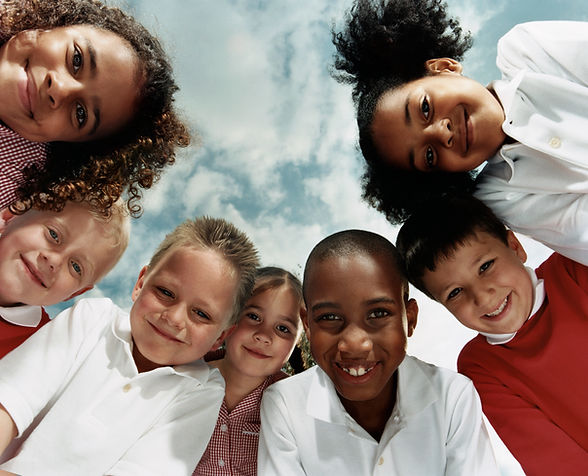
Learning words from Social Interactions
Researcher: Elena Luchkina
In this set of studies we are looking at the role of socially contingent interactions, such as turn-taking in speech or reacting to someone’s speech with actions, in shaping children’s understanding that language is communicative and referential. We look at naturalistic parent-child interactions and online experiments to explore these questions.
Compositionality
Researchers: Alyson Wong,
Anna Cao
When do we develop the ability to combine or compose concepts? This project aims to understand whether concepts combine in the same way that words combine into sentences by testing both preschoolers and pre-linguistic infants. Compositionality is a key component of human cognition, learning, and development. Understanding how compositionality develops will be important when thinking about how to create intelligent machines that think and learn like children and adults.


Decision Making
Researcher: Stephanie Alderete
These studies investigate how children use their understanding of probabilities and possibilities to guide their decision-making. Children play a fun game where they try to collect gumballs from gumball machines. Through these studies, we hope to better understand the developmental origins of inductive and deductive reasoning.
fNIRS
Researcher: Nick Zhang
Numerical cognition is central to humans as it constantly informs our judgments and decisions. While previous studies have already identified several behavioral and neural signatures of number processing, little is known about the neurocognitive development in children. We use functional Near-Infrared Spectroscopy (fNIRS), a non-invasive, motion tolerant, and child friendly brain imaging device, to measure the participants’ neural activity during number comparison tasks.


Probability Updating
Researchers: Alyson Wong, Stephanie Alderete, Anna Cao
When reasoning about uncertain events, we make predictions based on the information available at the moment. Posterior probability is the result of people using new information to update their belief about the probability of something happening. In these studies, we study whether infants and children could reason about posterior probabilities and revise their probability estimates in light of new evidence.
Changing Children's Intergroup Biases and Social Stereotypes
Reseacher: Rongzhi Liu
In these studies, we investigate whether children’s intergroup biases (attitudes and beliefs about their own social groups versus other social groups) can be changed given new evidence. We study both novel social groups and real social groups (racial and ethnic groups). These studies would help us understand the malleability of biases in childhood and help us design interventions to combat biases from a young age.


Learning From Different Teachers
Researcher: Cristina Sarmiento
Children are rapidly learning from the people around them. Past research has shown that there are academic benefits when underrepresented minority students have a teacher that is the same race as them (Redding, 2019). How early does this learning advantage begin? This study aims to investigate the racial influence of teachers on infants’ learning.
Friendship
Reseacher: Rongzhi Liu
Recent studies have examined children's developing understanding of friendship. These studies have shown that children have a multifaceted concept of friendship; they understand the importance of various factors in friendship, such as spending time in proximity, similarity, prosocial behaviors, and loyalty. However, the role of reciprocity has largely been overlooked in these studies. In this study study, we examine whether children think reciprocity (bidirectional prosocial behaviors) is a stronger predictor of friendship than unidirectional prosocial behaviors, at the beginning stage of friendship.


